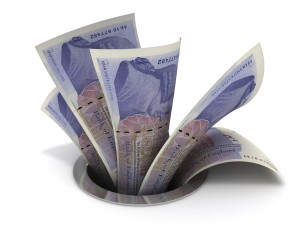Should Salespeople Set Prices? …The Eternal Debate
We often get stuck in the middle of a heated discussion across the boardroom table about whether salespeople should be allowed to either set prices or offer discounts. I find myself sitting there, sage-like, until the fury has died down and both sides turn to me for the ‘expert’s view’. I thought I would save you the angst and give it to you up front.
There have been quite a few studies (mainly in the USA) that indicate that companies in the same sector that do not allow salespeople discretion to discount make more money. However it is not quite as black and white as that…it sort of depends on the nature of the business, the mindset of the sales team and how you manage them.
A good starting point is to distinguish between two rejections on price which are sometimes difficult to tell apart:
- “I have a price from your competitor that is lower than yours and I cannot see a reason to pay a premium to you.”
- “I like your product and am intending to buy from you, but I am going to have a crack at getting a discount because you look scared and I want some of your profit.”
It takes takes a deep understanding of the context of the purchase and the needs of the company behind the somewhat aggressive buyer, to call his or her bluff and stand your ground. There are many reasons why front-line salespeople won’t do this:
Deals are binary for them... In their world, sitting in front of a customer, they are faced with a choice: Give the customer the 5% discount that they are asking for or lose the deal (and the associated bonus).
At the centre of the organisation we aggregate the swings and roundabouts to get our market view. The salesperson’s market view is the customer across the table from them right now.
Nobody ever tells you that you are too cheap… This is an inherent cognitive bias that afflicts almost all companies. Unless properly measured, your view of your price position is almost always inflated.
Field Salespeople are unfamiliar with the maths… There is seldom anywhere in career path of the average salesperson where someone sits them down with a P&L and shows them the disastrous effect dropping price has on the bottom line.
There is an assumption that the competition will not react… They may not get a chance on this deal, but the next time they come up against you they will have learned their lesson and launch a pre-emptive strike…. (don’t get me started on the whole price war metaphor thing).
5% doesn’t sound like much… Who hasn’t heard salespeople round to the nearest 5%… after all it is only a 20th…. not if it is another 5% discount from list and the discount is already 65%… then it is a 14% drop in price. A 5% drop in price will put a 4.9% EBIT business into the red.
Negotiating is different from Selling…. a salesperson will go out of their way to delight a customer, after all that their job! Delighting the customer when negotiating price is not usually a good idea.
The ability to discount is a badge of rank… It is like the company car grade or the title on the business card (do you have anyone who is still a Sales Representative? …or are they all Area Managers now). The more senior you are the more of the company’s money you are allowed to give away. The discretion to set or discount prices will have to be wrestled from their cold, dead hands.
Having said all that…
If you cannot generalise at the centre about the price sensitivity of the market and you do not have the time feed the decision up the management chain, then perhaps the salesperson does need to make the judgement whilst sat in front of the customer. If this is the case this is what you have to do:
Train the hell out of them… teach them the maths until they can do it in their head without thinking (some won’t make it). Teach them to understand benchmarks, context and value so they can judge price sensitivity. Teach them to negotiate (needless to say we can help with this).
Measure them and reward them to drive good pricing behaviour… We still see some companies where salespeople are measured on volume or value yet allowed to discount. We tend to put the CEO straight fairly quickly (we find a baseball bat helps). Even bonus paid on profit or contribution doesn’t always crack it.
Give them permission to lose customers on price… this is an anathema to most companies, but if you always win you are not pushing the envelope on price.
HERE’S A WACKY IDEA… to start down this path, give them the discretion to increase prices but not discount. Measure and celebrate those that get the best price for the value your company offers.
